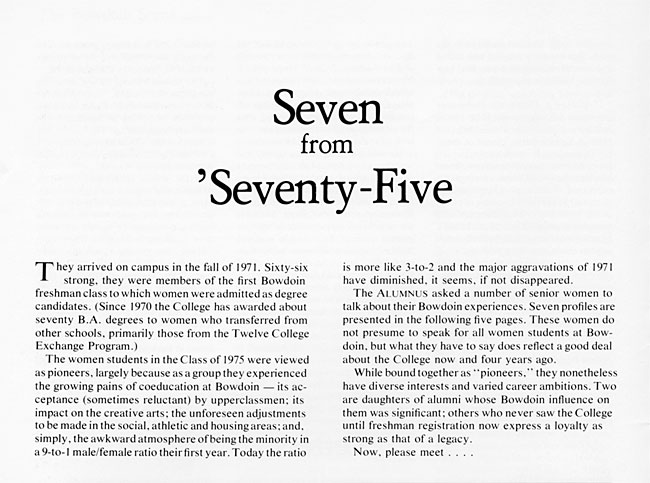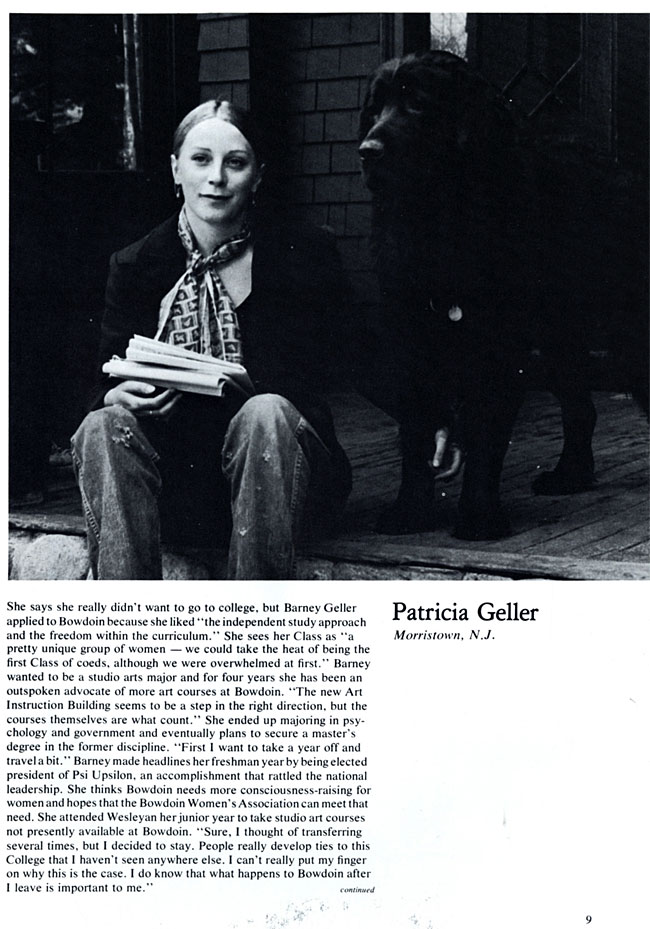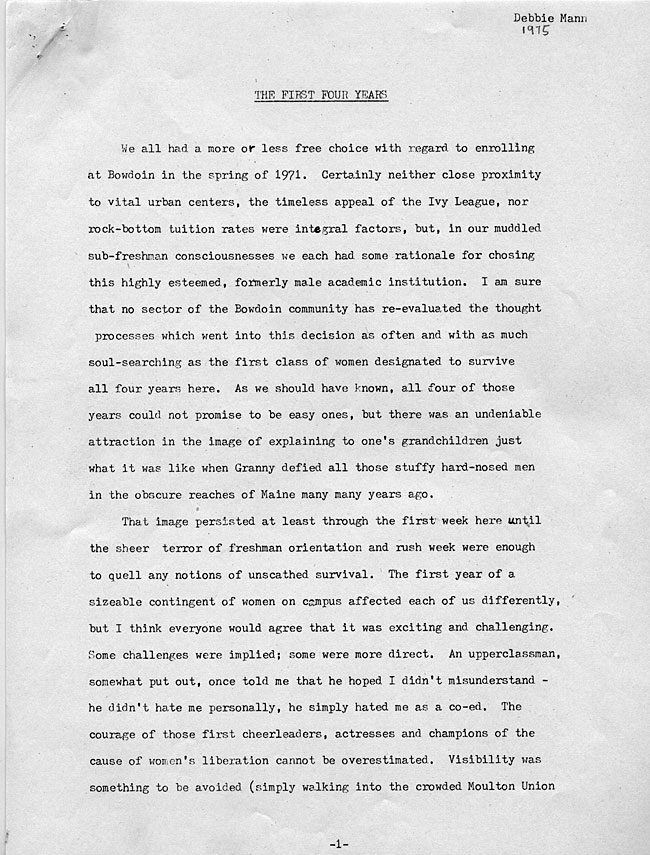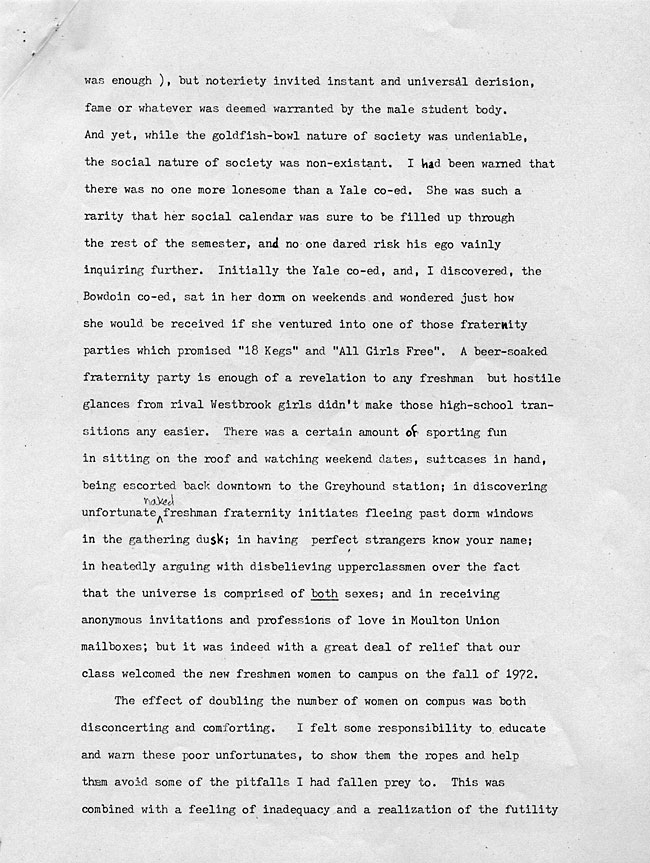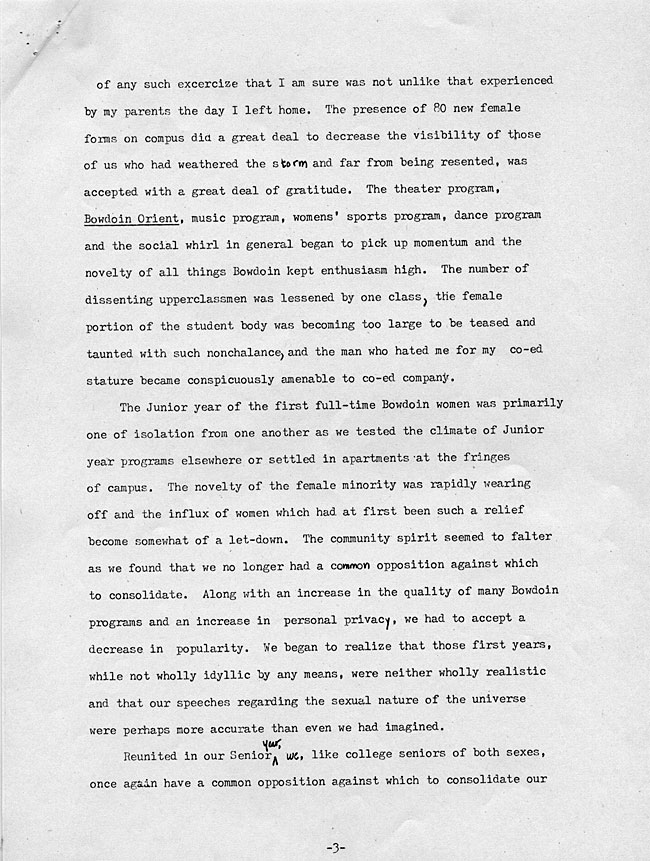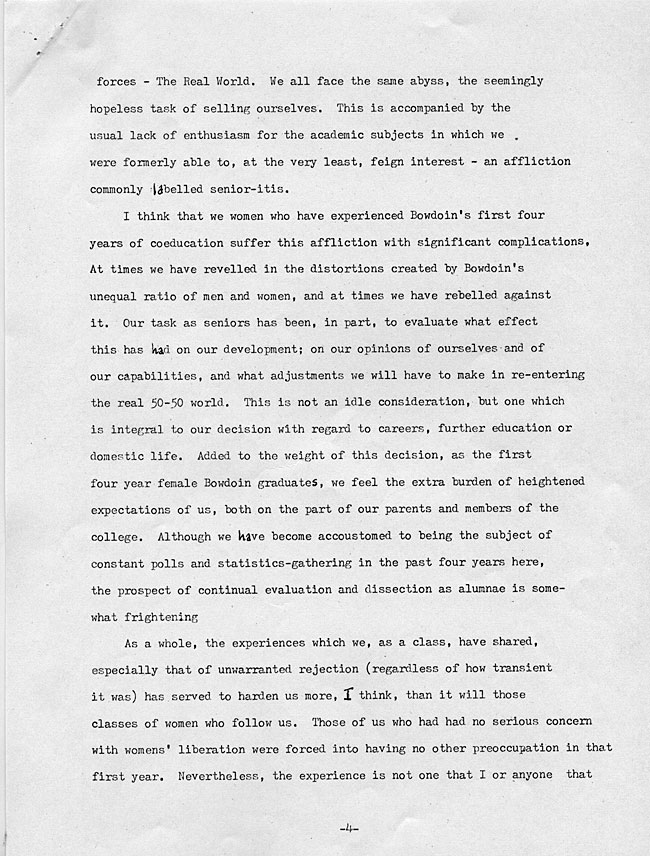This excerpt from the article “Seven from ’Seventy-Five” (Document EN, 29) from the spring 1975 edition of The Bowdoin Alumnus (Bowdoin’s alumni magazine, which is now known simply as Bowdoin) includes the introduction and one of seven short profiles of women graduating in 1975 after having been “members of the first Bowdoin freshman class to which women were admitted as degree candidates.” The introduction is noteworthy because it not only anoints these women and the other women from their class “pioneers,” but it also posits that “the major aggravations [regarding issues with coeducation] have diminished, it seems, if not disappeared.” This is perhaps a generous view with which some might disagree, but it is clear from the sentiments of the women in the article that the initial issues with coeducation certainly did abate during their four years at Bowdoin.
Patricia “Barney” Geller describes her class as “‘a pretty unique group of women—we could take the heat of being the first class of coeds, although we were overwhelmed at first.’”
Her profile draws attention to the fact that she was the first woman to be elected president of the Psi Upsilon fraternity, during her first year at Bowdoin. While it is certainly impressive that a woman was elected president of a fraternity during the first year of full coeducation at Bowdoin, Geller notes that even in 1975 there was still work to be done for women, which she hoped the Bowdoin Women’s Association could address. Given the founding of the Women’s Resource Center at Bowdoin in 1980, it seems that the College did eventually take seriously the idea of “consciousness-raising for women.” Geller had considered transferring, but she decided to stay because of the ties students developed with the college. “‘I can’t really put my finger on why this is the case,’” she stated. Geller expresses a sentiment that alumni continue to voice to this day.
